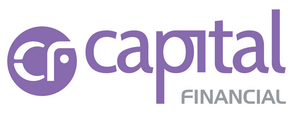Working unsuccessfully over a length of time to collect bad debts can be frustrating. It is something small businesses face all the time. When collection efforts fail, many such small businesses turn to third-party collection agencies for help. They find they have two choices: sell their debts or assign them to the collection agency on contingency.
The first type of collection agency, the one that purchases debts from small businesses, is often referred to as a debt buyer. The other type of agency is referred to as a debt collector. Both agencies actually collect bad debts. The biggest difference in what they do boils down to debt ownership.
Buyers Own the Debts They Purchase
A collection agency that buys bad debts is buying an asset. Under the law, debt is an asset that can be bought and sold as easily as tangible property. The same ownership rules apply. Once a small business sells a bad debt to a collection agency, it no longer has any claim to that debt. The debt is fully owned and controlled by the buyer.
Buying bad debts is a risky proposition. So risky that collection agencies tend to offer pennies on the dollar. The older a debt is, the less a buyer is willing to pay for it. Still, buyers are prepared to take the risk because they stand to make a considerable profit when debtors come through.
Collectors Work on Consignment
A collection agency that does not purchase bad debts has to work on some other model in order to get paid. That model is the consignment model. Bad debts are assigned to the collection agency. That agency works on behalf of the creditor. Successful collections earn the agency a flat fee or a percentage of the amount collected.
Judgment Collectors is a Salt Lake City collection agency that operates on consignment. The agency specializes in collecting outstanding judgments in 11 states, including Texas and Arizona. They say they prefer the consignment model because it is less risky for both parties and it motivates them to do the best job possible. They certainly don’t want to do a ton of work and have nothing to show for it in the end.
Recover As Much As Possible
A small business looking to send debts to collection simply wants to recover as much money as possible. Maximizing recovered amounts must be balanced against the amount of money a company will spend on collection. This explains why the smallest of debts tend to be written off as losses rather than sent to collection.
If a company needs to spend more money than it expects to recover through collection efforts, collection becomes a money-losing proposition. As long as the business is going to lose something, it might just as well choose the lesser amount. That lesser amount may be the original debt without any additional collection costs.
All of this being the case, the consignment model offers companies an advantage inasmuch as they do not spend another dime on collection after assigning bad debts to collection agencies. Through consignment, they stand to recover more than they would by selling bad debts to buyers.
Small Businesses Do What Works
Selling bad debts to collection agencies is sometimes the best course of action. Other times, assigning debts on consignment is the wiser choice. Small businesses do whatever works in a given situation. The unfortunate thing is that sending bad debts to collection virtually guarantees not getting full value for them. Collection costs time and money, both of which ultimately reduce the amount recovered. Creditors lose something either way.




